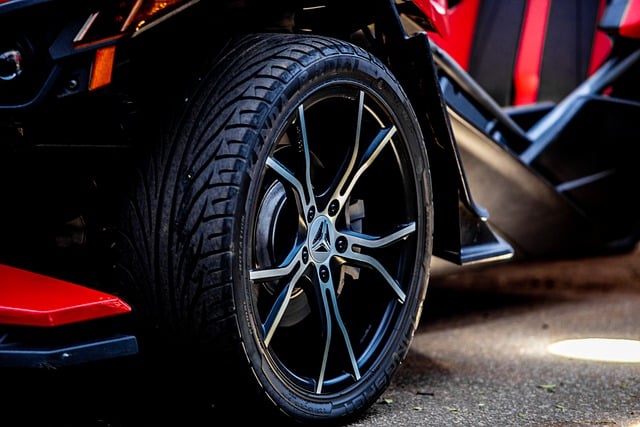To register an out-of-state car in a new state of residence, you must familiarize yourself with the specific DMV requirements, which include collecting your car title, previous registration, proof of insurance, and evidence of your new residency. A vehicle inspection for safety compliance and possibly an emissions test are mandatory to ensure adherence to local standards. The registration application should accurately detail the VIN, make, model, and current registration information. Be prepared for a range of fees, including base registration, potential additional charges for inspections, and state-specific costs. Utilize a detailed checklist to guide you through the DMV Out of State Vehicle Registration process, covering all necessary steps from paperwork to fee payment, and enabling you to legally operate your vehicle in your new state without delay. This process ensures compliance with the How to Register Out of State Car guidelines, including Fees for Registering Out of State Car and Transferring Out of State Car Registration, facilitated by a comprehensive guide for those Moving with Out of State Car.
Navigating the out-of-state car registration process can seem complex, yet with clear guidance and a step-by-step approach, it becomes a straightforward task. Whether you’re relocating or have acquired a vehicle from another state, understanding the DMV requirements for registering your car in your new location is crucial. This article demystifies the steps involved in the DMV out-of-state vehicle registration process, ensuring you comply with each state’s unique rules and fees. From essential documentation to handling specific vehicle inspections and emissions tests, our comprehensive guide will assist you in transferring your out-of-state car registration with ease. Whether you’re focusing on the how to register out of state car queries or seeking a full rundown on the topic, we provide valuable insights to help you hit the road legally, swiftly, and without hassle.
- Understanding the DMV Requirements for Out-of-State Car Registration
- Step-by-Step Guide to Registering Your Out-of-State Vehicle
- Essential Documentation for Out-of-State Car Registration
- Handling State-Specific Vehicle Inspections and Emissions Tests
- Navigating Fees and Transferring Out-of-State Car Registration
Understanding the DMV Requirements for Out-of-State Car Registration
When navigating the out-of-state car registration process, it’s crucial to familiarize yourself with the specific requirements set by the Department of Motor Vehicles (DMV) in your new state of residence. The process for registering a vehicle acquired outside of your current state can differ significantly from what you’re accustomed to, and understanding these differences is key to a smooth transition. To initiate this process, you should first consult the DMV’s guidelines for residents who have recently moved or are looking to register a non-resident vehicle. This typically involves gathering essential documents such as your out-of-state title and proof of insurance, along with providing evidence of your new state’s residency status.
Upon moving with an out-of-state car, you’ll need to complete a vehicle inspection if required by the new state, which ensures that your car meets local safety and emissions standards. Additionally, you must complete the necessary paperwork, including an application for out-of-state car registration in another state. This form will request information such as the vehicle identification number (VIN), the make and model, and the current registration details from your previous state of residence. It’s important to note that each state may have its own unique fees structure for registering an out-of-state car, so be prepared for any financial obligations. Transferring out-of-state car registration involves understanding these costs, which can include everything from a base registration fee to additional charges for emissions testing or inspection, depending on the jurisdiction’s rules. By adhering to these requirements and familiarizing yourself with the DMV out-of-state vehicle registration process, you can efficiently transfer your registration and legally operate your vehicle in your new state without delay. Our comprehensive checklist is designed to guide you through each step of this process, ensuring that all legalities are addressed and that your transition onto the roads of your new home is as seamless as possible.
Step-by-Step Guide to Registering Your Out-of-State Vehicle
Embarking on the process of registering an out-of-state vehicle can be a straightforward endeavor once you navigate through the required steps. The Out of State Car Registration Process begins with thorough research to understand the specific DMV requirements in your new state of residence. Each state has its own set of rules and fees associated with vehicle registration, so it’s crucial to familiarize yourself with these ahead of time. Typically, you will need to provide proof of residency, which may include utility bills or a lease agreement, along with completing a vehicle inspection to ensure it meets the safety standards of your new state. Additionally, submitting documents such as the car title, previous registration from your original state, and proof of insurance are fundamental components of the DMV Out of State Vehicle Registration process.
To transfer your out-of-state car registration without complications, prepare for potential fees that differ by state. These may cover the cost of registering an out-of-state car as well as any additional inspections required to comply with the new state’s regulations. If you’re moving with an out-of-state car, it’s advisable to plan for these expenses in advance. Our site provides a detailed checklist for those who seek assistance with this transition, covering all aspects from understanding emissions testing requirements to obtaining a temporary permit. This guidance ensures that you can navigate the process efficiently and comply with the legalities of transferring your vehicle registration to another state, thereby allowing you to legally drive your car in its new home state promptly.
Essential Documentation for Out-of-State Car Registration
When transitioning to a new state with an out-of-state car registration process, it’s crucial to be well-prepared with all the necessary documentation. The first step is to gather your essential documents, as this will streamline your registration process at the DMV. These documents typically include your current vehicle title, which proves ownership; your previous car registration as proof that you have already registered the vehicle elsewhere; proof of insurance, showing you are covered according to the laws of your new state; and proof of residency in your new state, if applicable. For those moving with an out-of-state car, some states may also require a Vehicle Identification Number (VIN) inspection or Emissions Inspection Certificate to ensure the vehicle meets local environmental standards. Additionally, be aware that each state has its own set of fees for registering an out-of-state car, so it’s important to familiarize yourself with these costs ahead of time to avoid any financial surprises. Transferring out-of-state car registration involves adhering to specific guidelines and completing the appropriate forms provided by your new state’s DMV, such as a registration application form. By having all required documents in order and understanding the associated fees, you can expedite your registration transfer and legally operate your vehicle in your new state without delay.
Handling State-Specific Vehicle Inspections and Emissions Tests
When transitioning your out-of-state vehicle to a new state, understanding and navigating state-specific vehicle inspections and emissions tests is paramount within the out-state car registration process. Each state has its own set of rules regarding vehicle safety and environmental regulations, which can include mandatory annual inspections or emissions testing. To ensure your vehicle complies with these requirements upon transferring your registration, it’s essential to familiarize yourself with the specific criteria of your new residence. For instance, some states may not require an emissions test at all, while others have stringent emission standards. It’s also important to note that the DMV out-of-state vehicle registration process often necessitates proof that your car has passed a state-approved inspection if such tests are required in your new location. This ensures that your vehicle is safe to operate on public roads and meets the environmental standards of the state.
To facilitate this transition, it’s advisable to seek out local inspection stations or authorized emissions testing centers as soon as possible after establishing residency. This proactive approach can help you avoid last-minute scrambling and potential delays in your registration transfer. If your vehicle passes the inspection, you will receive a certificate or report that must be presented alongside other necessary documents, such as your car title, to complete the DMV out-of-state vehicle registration process. Remember to keep abreast of any fees for registering out-of-state cars associated with these inspections and tests, as they can vary significantly by state. By being well-informed and prepared, you’ll navigate the how to register out-of-state car procedures efficiently, ensuring a smooth legal transition of your vehicle registration in another state.
Navigating Fees and Transferring Out-of-State Car Registration
When transitioning your out-of-state vehicle to a new state, one of the critical steps is understanding the fees and procedures associated with the DMV out of state vehicle registration process. The costs for registering an out-of-state car can vary significantly from one state to another, so it’s imperative to research these beforehand. Typically, you’ll be required to pay a registration fee, which may include a prorated amount based on the time remaining in your previous state’s registration period. Additionally, there might be extra charges for handling the transfer or for any necessary inspections that confirm your vehicle meets safety and emissions standards of your new residence. To streamline this process, ensure you have all relevant documents at hand, including your current car registration, title, proof of insurance, and evidence of residency in your new state if required. These documents will facilitate the transferring out-of-state car registration with minimal delays. It’s also advisable to familiarize yourself with the specific rules and regulations of the DMV in your new state as they can differ substantially from those of your previous state. By carefully preparing for the associated fees and having all your paperwork in order, you’ll make the transition smoother and ensure that your out of state car registration process goes off without a hitch, allowing you to legally navigate your new surroundings promptly.
Navigating the out-of-state car registration process can seem complex, but with the right guidance and a clear understanding of the steps involved, it becomes a straightforward procedure. This article has outlined the critical aspects of registering your vehicle in another state, from the DMV requirements to the essential documentation needed for a smooth transition. Whether you’re transferring your registration due to relocation or purchasing a car from another jurisdiction, our step-by-step guide provides clarity on handling state-specific vehicle inspections and emissions tests, understanding fees for registering out of state cars, and ensuring compliance with all regulations. For those moving with an out-of-state car, utilizing the comprehensive checklist available on our site will help you maneuver through this process efficiently. Remember, with the right preparation and resources, registering your vehicle in another state is a manageable task that ensures your continued legal operation on public roads.



